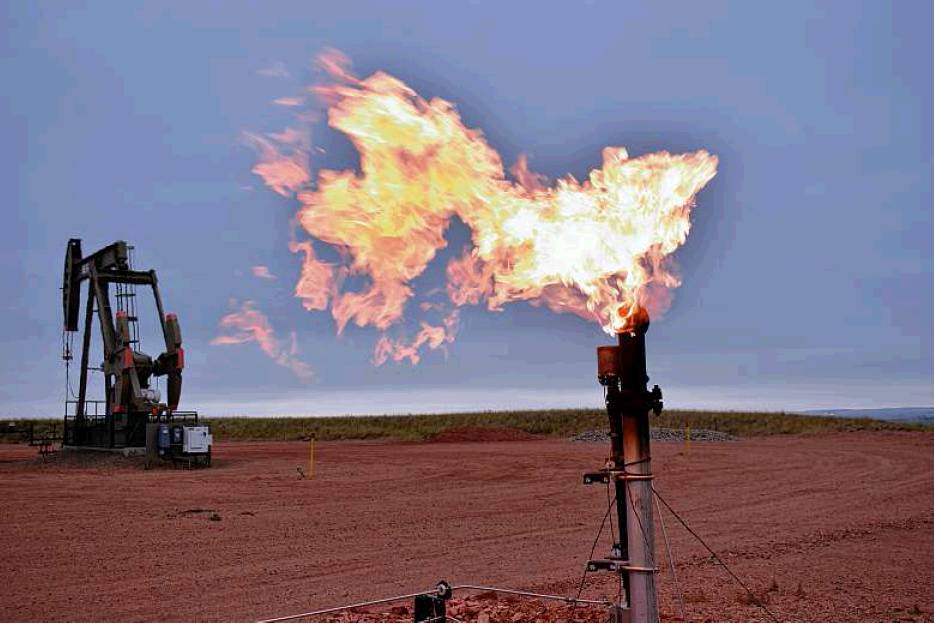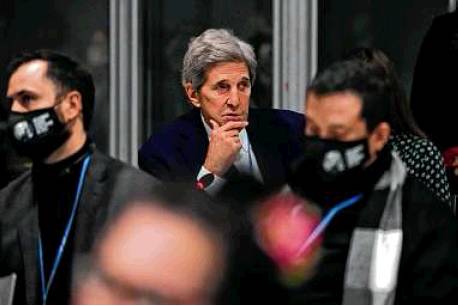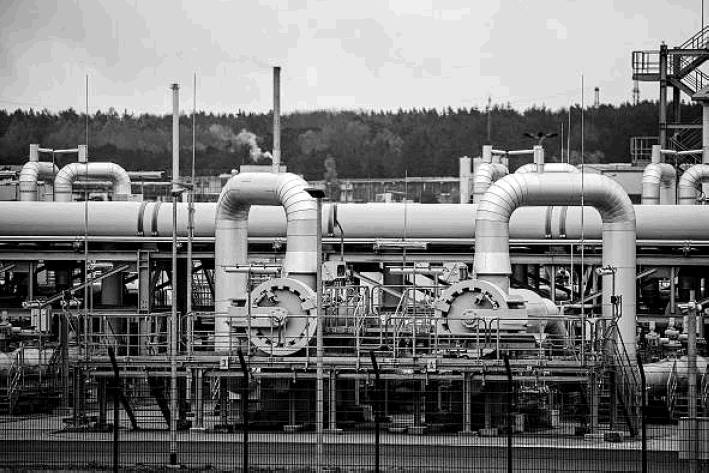Kerry cautions nations against wider reliance on natural gas
Climate envoy says renewable options should be priority
By James Osborne STAFF WRITER
WASHINGTON — U.S. climate envoy John Kerry cautioned nations Monday about investing too heavily in natural gas infrastructure, warning that the fuel’s emissions, while less than coal’s, were too high to use it in the fight against climate change.
“Most countries have the ability to deploy significant amount of renewables and they’re choosing not to do that. They’re moving towards gas,” he said at a climate event hosted by the U.S. Chamber of Commerce. “If you capture 100 percent (of emissions) and it makes it affordable, great, but we’re not doing that.”
Long termed a “bridge fuel” by U.S. officials, natural gas produces about half the carbon dioxide of coal when burned, helping to reduce U.S. emissions by 13 percent from 2005 to 2019.
But unburned natural gas, which is primarily methane, frequently escapes into the atmosphere during production and transportation — at a rate of 5 to 10 percent globally, Kerry estimated. Methane has about 25 times the warming impact on the climate of carbon dioxide.
Wealthier nations are investing heavily in renewable energy, with solar and wind projects leading the way in new generation on the U.S. power grid for years. But in developing nations, where coal and fuel oil have long dominated power supplies, governments are investing in gas infrastructure that is expected to last for decades.
“It is not feasible for oil and gas to be taken offline in the short-and medium-term because of the state of our development,” Lawrence Apaalse, chief director at Ghana’s Ministry of Energy, said at the World Petroleum Congress in December. “We’re just beginning to industrialize.”
Even in the U.S., some officials argue that natural gas remains vital to the nation’s electricity infrastructure.
Sen. Joe Manchin in September cautioned members of the Federal Energy Regulatory Commission Tuesday against action that would reduce the use of natural gas on the nation’s power grid to address climate change.
“We’re in trouble. I hope everyone understands that. Not trouble we can’t get out of, but we’re not on track. We have to be thinking hard about deploying more renewables. We have the technology, and we can do it.”
John Kerry, U.S. climate envoy
The powerful chairman of the Senate Energy and Natural Resources Committee said that natural gas is critical to providing reliability at a time of increasing reliance on wind and solar sources that depend on weather to produce electricity.
“We need to smartly expand the country's natural gas infrastructure,” he said. “Natural gas has an important role to play in the energy transition.”
The hope among natural gas and coal producers is to develop carbon-capture technology that can keep emissions from entering the atmosphere.
But so far that technology has yet to be proved economically feasible, with most nations so far resisting calls to place a tax on emissions.
At the same time U.S. and European oil companies, including Exxon Mobil and BP, have been investing in ways to reduce methane emissions from natural gas production.
But those efforts have yet to tip the scales, Kerry said.
“We’re in trouble. I hope everyone understands that. Not trouble we can’t get out of, but we’re not on track,” he said. “We have to be thinking hard about deploying more renewables. We have the technology, and we can do it.”


